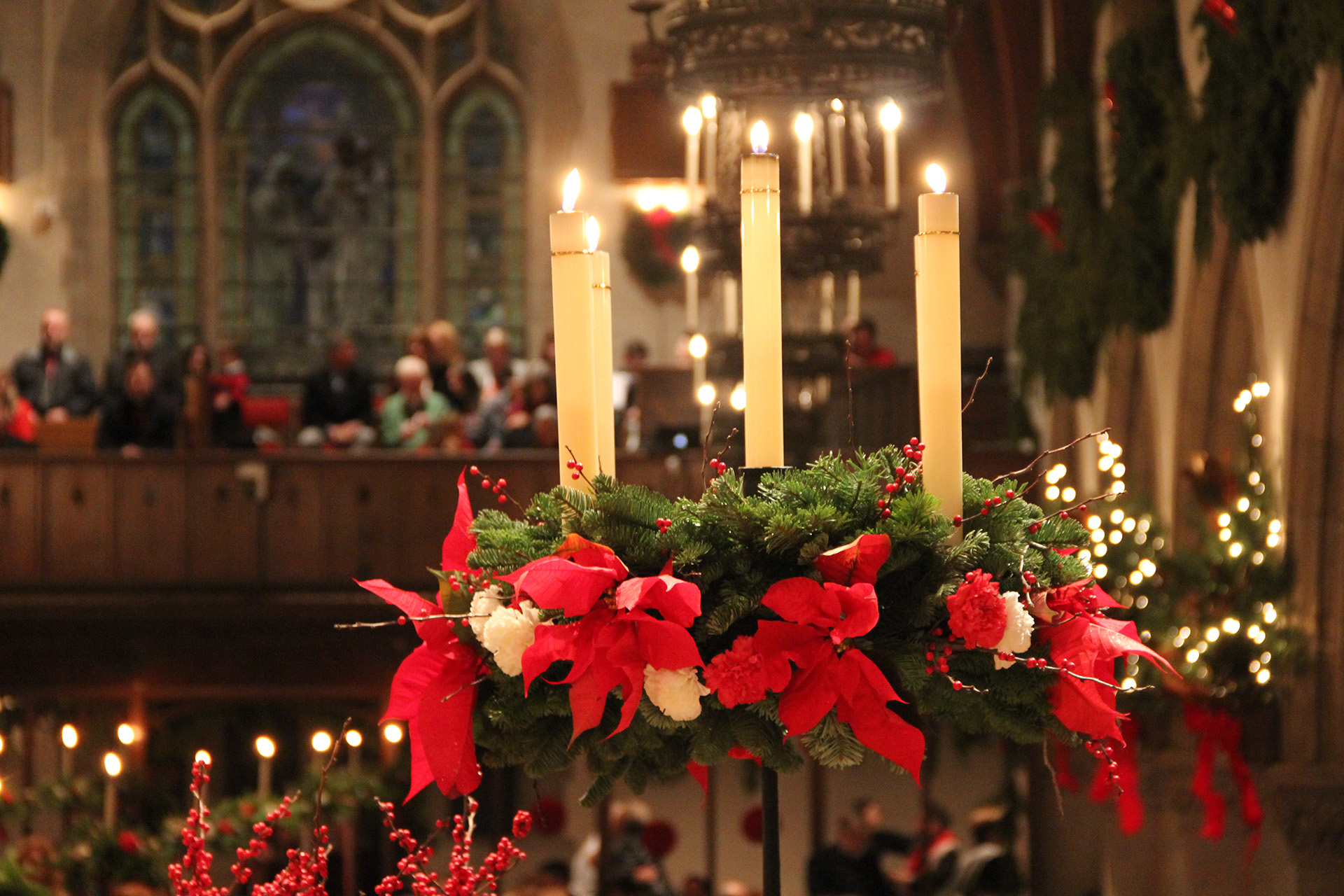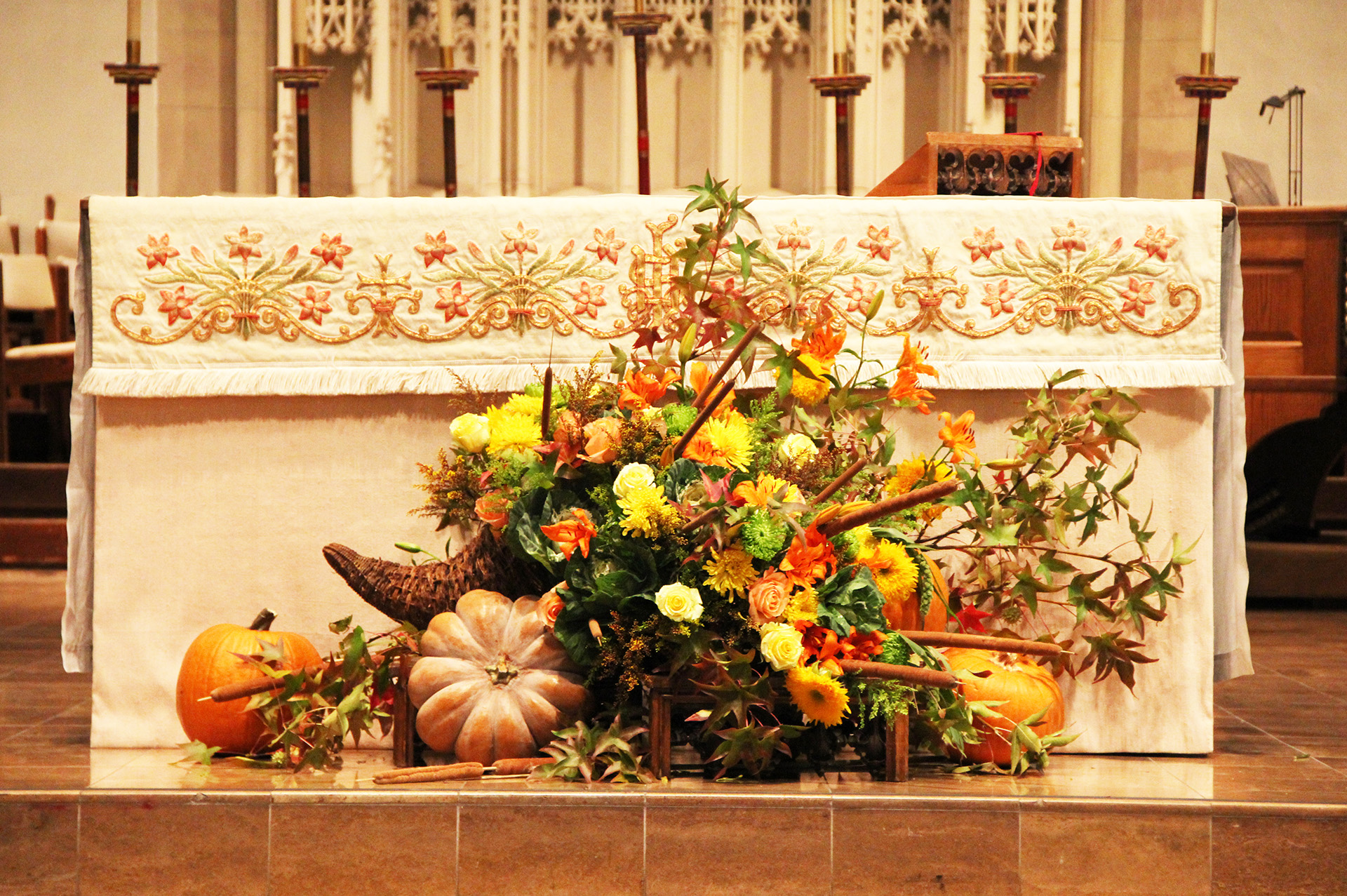
Sermon offered by Mike Kinman at All Saints, Pasadena at our 7:30 p.m. Ash Wednesday service.
=====
Recuerda que eres polvo … y al polvo volverás
Remember that you are dust … and to dust you shall return.
En nombre de dios viviente. Amen.
+
Recuerda que eres polvo … y al polvo volverás
Remember that you are dust … and to dust you shall return.
Ash Wednesday is a reminder that we are finite. That our lives are finite.
Our lives had beginnings and our lives will have ends. All of us will go down to the dust.
No matter how powerful we are. No matter what we do or how great an impact we have during this life, the day will come when we will take our last breath. When our heart will beat its last. When we will return to the dust from whence we came.
No one gets out of here alive.
I spent much of today at Men’s Central Jail. With my fellow chaplains, we went down the rows of cells, looked our beloved siblings in exile in the eyes as we reached between the bars and did what I will do here in a few minutes … place my ash covered thumb on a forehead and say those words of Ash Wednesday:
Recuerda que eres polvo … y al polvo volverás
Remember that you are dust … and to dust you shall return.
As the morning went on, the words began to grate on me.
These were not people who needed reminding that they were dust.
These were not people who needed reminding that there was a limit to their power.
These were not people who needed reminding that their life was finite … that their life would end.
What did it mean for me to tell them that they were dust?
After a few hours, we went across the street to Twin Towers. Twin Towers has the distinction of being two things at once – the world’s largest jail and the nation’s largest mental health facility.
Of course, those two things – a jail and a mental health facility – are totally incompatible. Twin Towers is a jail. It is a place where people are sent when they are broken mentally and emotionally to a degree that they cannot exist in the general prison population, but it is not place of healing and health … far from it.
Twin Towers is a place of containment and control. Some services are offered, but the very environment is so dehumanizing it is impossible to imagine any deep and lasting healing happening. The most that can be hoped for is that people are kept in the most immediate sense from harming themselves or others.
We went to the top floor of Twin Towers. The top floor is where the most deeply damaged images of God are warehoused. They have committed crimes … some of them heinous crimes … and there is an absolute need to have them protected from themselves and to protect others from them … and you will never see people in deeper need of healing and less likely to receive it.
What we do with them defies description, though I will try.
Imagine a kennel. Only a kennel that would be shut down and the owner arrested if dogs were treated this badly. Pods of cells where human beings are kept in isolation. No clothes except for what is called a suicide vest, which is essentially a thick blanket with snaps that cannot be turned into a rope that could be used to hang yourself. Thick concrete block walls and a thick plexiglass window on a thick metal door through which the person inside can see the common area of the unit but not any other human being.
The cells are empty except for metal bed bolted to the wall and a metal toilet. Some have books and paper but many do not. The whole unit smells like urine mixed with a slight odor of disinfectant. We step over fluid and around trash as we walk from cell door to cell door.
An officer walks me to my first cell. I stop at the window and shout so my voice can be heard through the concrete, steel and thick plexiglass … and through a combination of words and gestures I indicate to the man inside that I am here to offer Ashes for Ash Wednesday.
The man inside, naked except for the blanket wrapped around his waist, comes to the door. I gesture downward and together we kneel. The guard unlocks a lock and opens a slit designed for a tray of food to pass through. Our eyes meet as they fill the opening of that narrow slit. His hand appears and reaches through. I reach in and through and grasp it. His hand is cold and clammy. I wonder when the last time he had another human being touch him.
We loose our hands. His eyes return.
“Would you like me to put ashes on your forehead?” I ask.
“What is this for? What does it mean?” he asks.
I know the answer I have always given … the answer I have given for more than 20 years of standing in front of people and making that sign of the cross in ash. I remember the first time I did it in a school, and placed ashes on the foreheads of small children whose lives were just beginning. I remember placing ashes on the forehead of 106-year-old Gussie Feehan just months before her long journey on this earth ended and she transitioned to wherever or however she is now.
I know the answer I have always given … Ash Wednesday is a reminder that we are finite. That our lives are finite.
Our lives had beginnings and our lives will have ends. All of us will go down to the dust.
I know the answer I have always given, and it sticks in my throat. Because I had never been asked to give ashes to someone who was already in a tomb. Whose life had so clearly so little value to his fellow human beings that we have locked him naked in a tower alone with his own deep brokenness and wallowing in his own waste.
Whose life had so clearly so little value that we are treating him with less dignity, respect and love than bodies going down to the dust are given at funeral homes.
“What is this for? What does it mean?” His words hang in the air.
His eyes, beautiful, pained, questioning, search out and answer from mine. An answer I no longer have…. Until the beauty of his eyes gives me the words:
“I’ll tell you what it means,” I say. “It means that no matter where you are. No matter how dead you feel. No matter how much the world treats you like you are dead, like you don’t matter at all. God sees you. God is with you. God loves you.”
He nods, his eyes moving up and down.
“Would you like me to put ashes on your forehead?” I ask.
The eyes move up and down again. “Yeah.” He says,
“Yeah.”
He leans his forehead against the slit and reaching through it with my ash covered thumb, I make the sign on the cross on his forehead and say:
“Devonte, you are beloved by God, you are beautiful and you are powerful. Remember that God sees you. Remember that God is with you. Remember that God loves you.”
I used to think I knew what Ash Wednesday meant. I used to answer that question without thinking. But now I’m not so sure.
I still believe Ash Wednesday is a reminder that we are finite. That our lives are finite. They had beginnings and they will have ends. All of us will go down to the dust.
But I don’t think that’s all Ash Wednesday means.
I think Ash Wednesday is also a reminder to us in all those places where we feel we have been left for dead, where we are dead to others, where God feels dead to us and where we feel dead to God that God is alive. And God sees us. And God is with us. And God loves us.
I think Ash Wednesday is also a reminder to us in all those places in our life where we feel less than dust that we are much, much, much more than dust.
I think Ash Wednesday is the place where life and death, where life and dust meet.
Where we remember that we are dust and we remember that we are always so much more.
One of the last cells I went to, the guard won’t even open the slit. He says the person is too dangerous and even though I say I am OK with that, the guard refuses. The man, whose name was Allen, screams and pounds on the plexiglass window, and when I go over he leans his head against the plexiglass … and I make the sign of the cross in ash on the window where his forehead is touching
And Allen steps back, looks at it, touches the window, touches his forehead and smiles.
There is no tomb so remote. There is no wall so thick. There is no wound so deep that the love of God cannot find, penetrate and heal.
As you receive your Ashes this night, let that knowledge be on your heart. Let that knowledge rest in your life.
Recuerda que eres polvo … y al polvo volverás
Remember that you are dust. And to dust you shall return.
Our lives are finite. They had beginnings and they will have ends. All of us will go down to the dust.
And … God sees you. And God is with you. And God loves you.
Yes, you me, all of us are dust. And you, me, all of us are always, always, so much more.
Amen.



